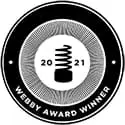Social Justice: What’s disability got to do with it?

Transcript
[Animated text appears on screen throughout the video, in sync with the narration delivered by a diversity of voices. Footage of people who represent the different communities being described is interspersed.]
Welcome! We’re sure glad you’re here!
All right, get comfortable, take a deep breath, and let’s imagine. What comes to mind when you think of the word “identity”?
Female, Hispanic, Buddhist, transgender … Things that help us understand who we are and where we come from … African American, gay, Asian, Muslim, indigenous … The way you think about yourself, the way you are viewed by the world … Heterosexual Pacific Islander, white lesbian, cisgender Mexican, Black male …
Were those some of the things that came to mind?
Did Blind? Or Deaf? Or lupus? Or depression? Or Black male COVID-19 long-hauler? Or white lesbian wheelchair user? Or any kind of disability?
Well, for many of us, disability is an identity. And a community and a culture. Both a socially constructed identity and also an identity that people choose and even celebrate. You see, disability is a natural part of the human experience. Not a problem to fix. Or an issue you can choose not to focus on.
So, why is it important to see it this way?
Well, 15% of the world’s population is living with a disability or disabilities. And each of those people have parents or siblings or children … Disability can and does affect all of us. It cuts across age, race, gender, and ethnicity. It’s something you can be born with or acquire at any point in your life.
And because disability itself is hugely diverse, there are infinite ways in which we live and experience the world.
We often talk about the importance of “bringing your whole self to the table,” but what happens when part of who we are is less welcome? When we value people without disabilities over people with disabilities, this is called “ableism.” Ingrained attitudes continue to degrade and stigmatize people with disabilities. While it’s common to use language like “insane” or “lame” or “dumb,” these terms label people with disabilities as deficient and inferior and undermine our collective work toward justice.
Now, on top of understanding the effects of ableism, there’s something else it’s important to know.
Although disability can affect all of us, it does not affect all of us equally. Inequity is exacerbated for disabled people who are members of other minority groups. When you take racism, add a slice of ableism, and then some patriarchy on top … well, then you are crushed by our systems. So, if you are a person of color, a woman, incarcerated, living in poverty, or in more than one of those groups, you are much more likely to have a disability. And people of color with disabilities are the most likely to live in poverty and be unemployed.
But there is good news …
Everything that’s wrong with our society was a set of choices, and the beautiful thing is that, together, we can make different choices.
So, together, let’s take another deep breath … and imagine.
What choices can we make to truly accelerate full inclusion? What choices can we make to collectively dismantle ableism? What choices can we make to fuel our march toward social justice?
There is so much …
You can open up the conversation, ask questions, and listen and learn to move past our collective fear toward action. You can create a safe space for disability identity, including your own. You can ensure that people with disabilities are involved in decision making and agenda setting. You can center the priorities of disabled people in your advocacy. And commit both time and budget to making all your organization’s activities accessible and inclusive.
You will make mistakes, and it’s okay. But don’t let fear hold you back. Together, we can celebrate how our differences make us stronger. Unite us, in fact. Together, we can talk about what each of us contributes and honor our interdependence.
In making our systems and structures, our communities, culture, and language accessible and free from discrimination, we won’t have to imagine what a just world looks like any longer. Because, together, we will have built it.
There is no justice without disability.
Accessibility Statement
- All videos produced by the Ford Foundation since 2020 include captions and downloadable transcripts. For videos where visuals require additional understanding, we offer audio-described versions.
- We are continuing to make videos produced prior to 2020 accessible.
- Videos from third-party sources (those not produced by the Ford Foundation) may not have captions, accessible transcripts, or audio descriptions.
- To improve accessibility beyond our site, we’ve created a free video accessibility WordPress plug-in.
Advocates from the disability community highlight why a disability lens is essential to all of our social justice work and what you can do to accelerate our collective impact and build a fully inclusive world.
Video discussion guide
This video seeks to galvanize our understanding of disability identity, connect disability to other issues of identity, and spark interest in disability-inclusive changes in social justice organizations. The video is open-source and available for anyone to share within their organization as part of a learning agenda.
Social Justice: What’s disability got to do with it?
Video Discussion Guide
The following questions can help facilitate small group discussions after viewing the video. There are no “right” answers—open dialogue and ongoing learning, however, are key. Feel free to pick and choose the questions your group finds most relevant.
Discussion questions
- How does disability show up in your life? Is it something you find yourself thinking about?
- How did the video make you feel about disability identity? Are there ideas or concepts that feel uncomfortable to you and why do you think that is?
- How do you think disability identity is socially constructed, as opposed to simply a diagnosis? How might that impact your work?
- In what ways is disability identity similar to other identities? In what ways is it different?
- What are the different factors that might make disability self-disclosure difficult? How does that affect our work together toward social justice?
Toward organizational action
- In what ways does our organization perpetuate ableism (intentionally or not)? How would we identify these policies, practices, and behaviors?
- How might we begin to disaggregate data by disability or track our work with the disability community?
- What is one change we can each commit to, given our roles in this organization?
- What are the things you want to know more about?
Resources
Interested in learning more? Check out these resources:
- Listen to Disability Rights Are Civil Rights, a podcast from the Leadership Conference on Civil and Human Rights.
- Read the report Civic Engagement and People with Disabilities: A Way Forward through Cross-Movement Building published by the Lurie Institute for Disability Policy.
- Read about the Disability Justice framework in the book Skin, Tooth, and Bone by Patty Berne and Sins Invalid or the article “What is Disability Justice?”. Sins Invalid also offers political workshops on issues such as Ableism and Disability Justice for Allies.
- Read the Black Disabled Woman Syllabus, compiled by Ramp Your Voice’s Vilissa Thompson, to find resources, readings, and additional information at the nexus of race, gender, and disability.
- Learn about the Inclusion@Work Framework from the Employer Assistance and Resource Network on Disability Inclusion (EARN), which outlines the key components of a disability-inclusive workplace, along with strategies to achieve them.
- Explore inclusive employment resources and advice on how to make meetings and events more accessible, collated by the Presidents’ Council on Disability Inclusion in Philanthropy.
- Follow disability twitter hashtags like #CripTheVote, #SpoonieChat, and #NoBodyIsDisposable to track what the community is discussing.
We encourage you to share Social Justice: What’s Disability Got to Do with It? using the hashtag #DisabilityDemandsJustice. To continue your learning journey around disability inclusion, please visit There Is No Justice without Disability.
This piece is part of Disability Demands Justice, a dynamic, ever-evolving hub to deepen our understanding of how disability intersects with social justice.
Explore the stories
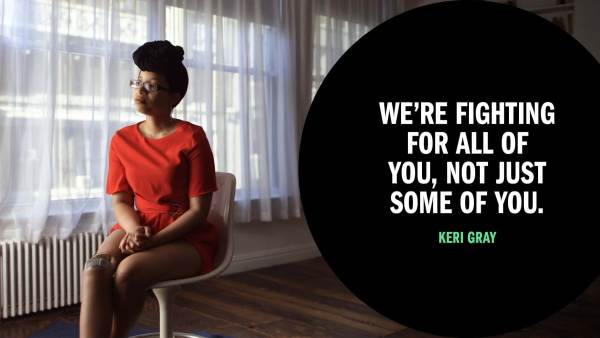
Intersectionality & Disability, featuring Keri Gray, the Keri Gray Group
Around the globe, people living with disabilities experience inequality in all its forms. Understanding intersectionality is essential to true inclusion. By centering those most marginalized and taking an intersectional approach in designing solutions, we can advance justice for all.
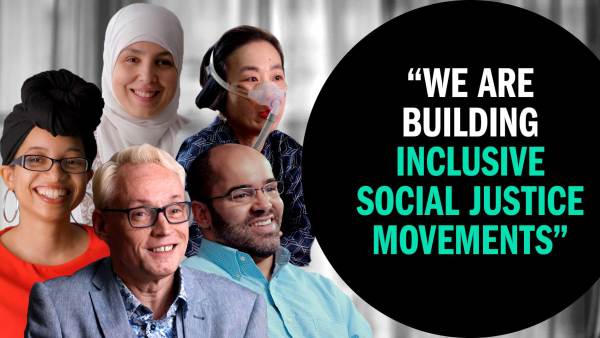
There is no justice without disability
Over one billion people in the world are living with a disability. We need to expand our definition of justice. To create a truly inclusive world, we need to recognize how disability intersects with issues of social justice. Racial justice, economic justice, and gender justice cannot exist without disability justice.
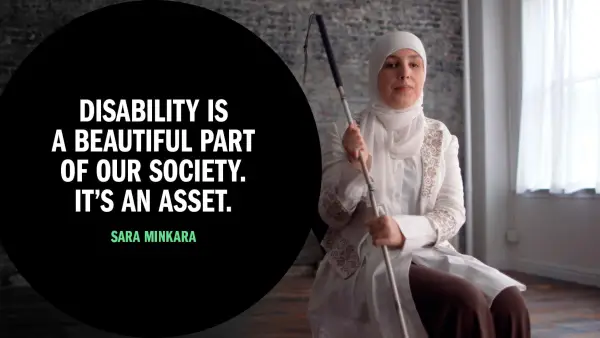
Disability Is an Asset, featuring Sara Minkara, Empowerment Through Integration
People with disabilities are the world’s largest marginalized population. Challenging discriminatory narratives and systems can help the disability community build power and create a more inclusive world, by contributing value across all sectors. Building a more inclusive world benefits everyone.
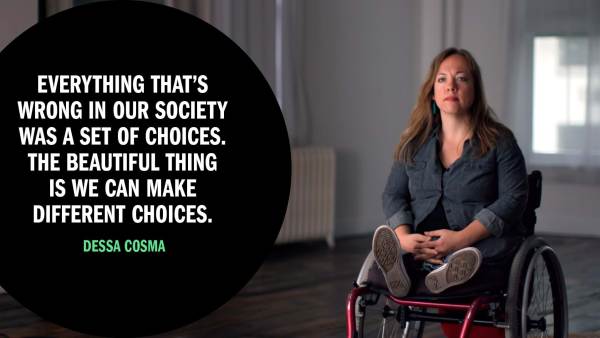
Economic Justice & Disability, featuring Dessa Cosma, Detroit Disability Power
Disability inclusion needs to be included in the fight for economic justice. Barriers to education and employment keep people with disabilities living in poverty. Ending poverty means addressing the drivers of economic inequality and reimagining the future of work.
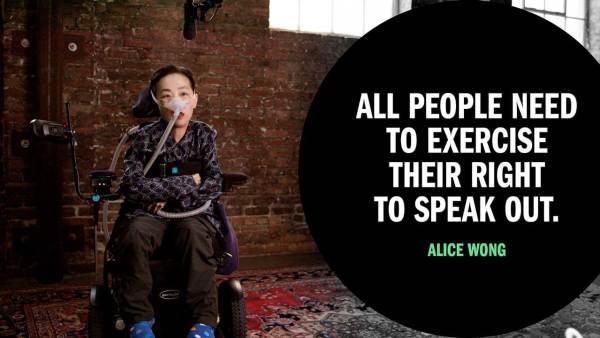
Political Participation & Disability, featuring Alice Wong
The right to vote is a fundamental part of building a thriving democracy in which all citizens can become active, engaged participants. People with disabilities face obstacles to political participation that need to be addressed in the journey to inclusion.
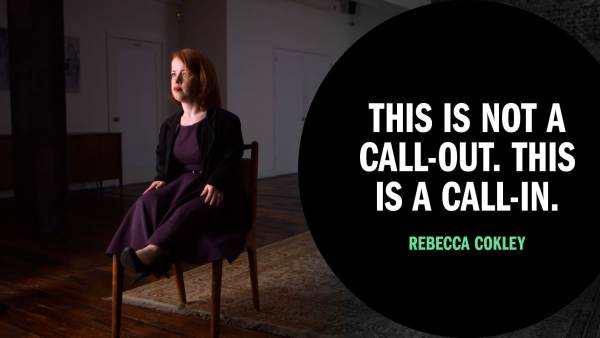
Your Values & Disability, featuring Rebecca Cokley, Center for American Progress
Disability needs to be included in the work of social justice. Through a commitment to diversity, equity and inclusion, and establishing organizational policies and practices, we can address challenges to accessibility and create an inclusive future.
